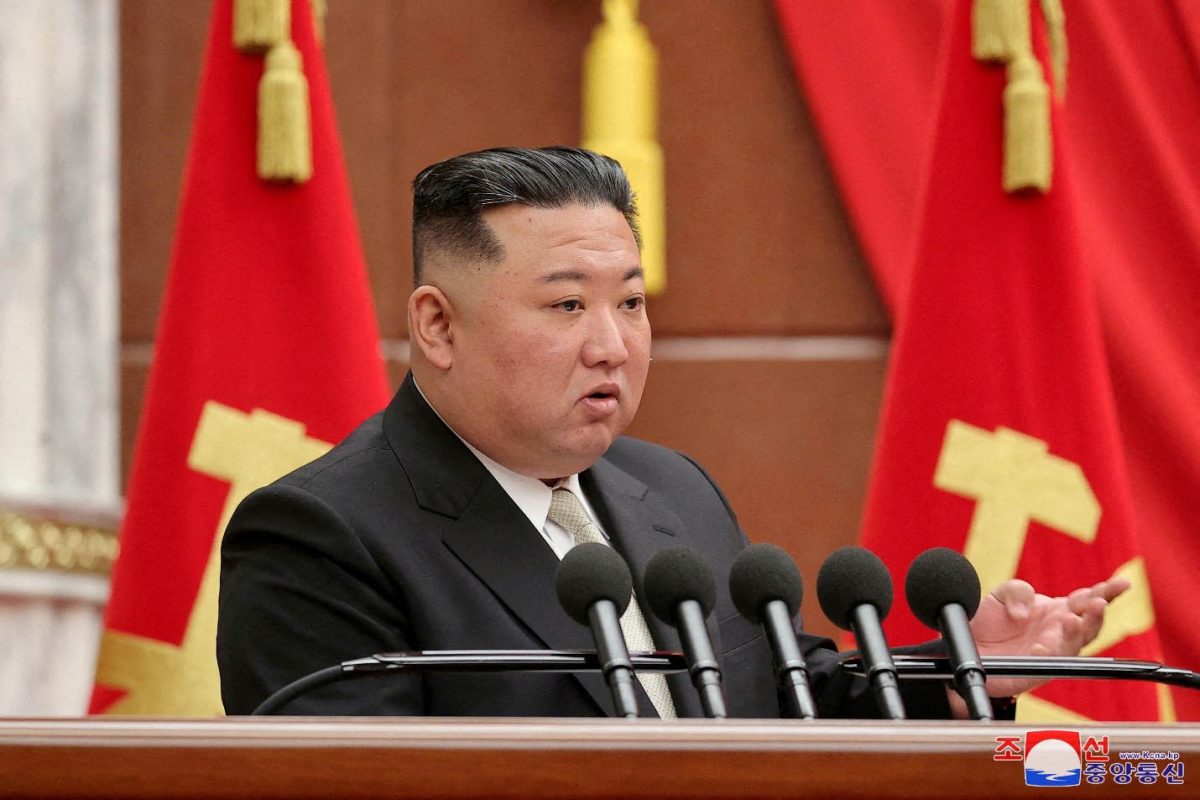SEOUL (Reuters) – North Korea fired a short-range ballistic missile towards the sea off the east coast of the Korean Peninsula on Sunday, South Korea and Japan said, in the latest of a series of tests carried out by the nuclear-armed state since the start of this year.
The missile, launched from the Dongchangri site on the west coast around 11:05 a.m. (0205 GMT), flew some 800 km (500 miles) before hitting a target, a South Korean military statement said. Japan’s Defence Ministry said the missile flew as high as 50 km (30 miles).
Soon after the launch on Sunday, South Korea’s Ministry of National De-fence said the U.S. deploy-ed a B-1B strategic bomber to a joint air drill, which Seoul and Washington say they are holding to strengthen deterrence.
The deployment of the bomber was planned in advance and unrelated to the latest North Korean launch, South Korean news agency Yonhap re-ported, citing the military.
Japan and the U.S. also conducted joint air and sea military exercises over the sea between the Korean peninsula and Japan for a third straight day on Sun-day, Japan’s local media reported.
Seoul has condemned North Korea’s ballistic missile launches as a “clear violation” of a U.N. Security Council resolution.
In a statement on Sun-day, G7 foreign ministers said they “deeply regret” inaction by the United Nations Security Council (UNSC) against the North caused by some members’ “obstruction”.
No country was named, but China and Russia have blocked attempts at the United Nations to respond to North Korea’s series of missile tests.
The launches have prompted criticism from Tokyo and Washington, as well as from Seoul.
“North Korea’s behaviour threatens international peace and security, and is unacceptable,” Japan’s State Minister of Defence Toshiro Ino told a news conference, adding that Japan had protested strongly via North Korea’s embassy in Beijing.
The U.S. Indo-Pacific Command said Sunday’s launch did not pose an immediate threat to U.S. personnel or its allies. But the missile launches highlight the destabilising impact of Pyongyang’s unlawful weapons of mass destruction and ballistic missile programmes, it said in a statement.
The North on Thursday fired a suspected intercontinental ballistic missile (ICBM) into the sea between the Korean Peninsula and Japan, hours before South Korea’s president flew to Tokyo for a summit that discussed ways to counter the North.
Pyongyang said Thursday’s ICBM launch was a warning against the U.S.-South Korea military drills, state media KCNA reported.
South Korean and U.S. forces began 11 days of drills, dubbed “Freedom Shield 23”, a week ago on a scale not seen since 2017.
North Korea criticised the U.S. and U.N. Secretary-General António Guterres, KCNA reported on Sunday, for raising the issue of its human rights abuses at an informal meeting of the UNSC, describing it as a “serious challenge” to its sovereignty.
“The U.S. launched a human rights campaign against the DPRK in the U.N. arena while staging the aggressive joint military exercise which poses a grave threat to our national security,” North Korea’s Permanent Mission to the U.N. was quoted as saying by state media.

